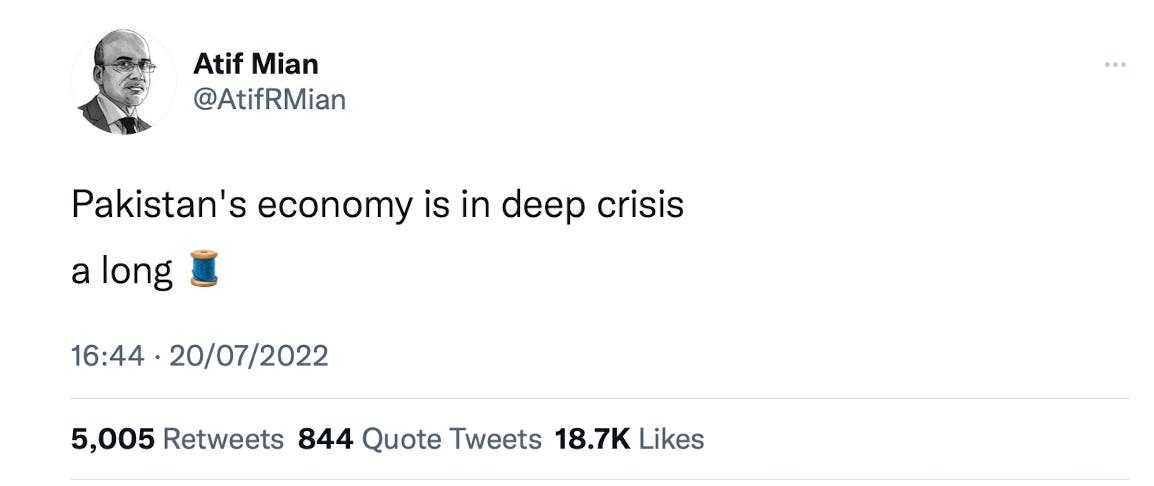How not to policy?
A lot of a country’s prosperity relies on the policy decisions of its government. It is clear that there are good and bad policy decisions, but it is less apparent how politicians and policymakers consistently make those choices. My co-blogger wrote a short note (citing a book review using India as a backdrop) that outlines the policy challenges facing developing countries and provides some basic propositions for making good policy choices.
India is an interesting case study, and I agree with Feyi Fawehinmi that it has ‘’pockets of world-class excellence in various sectors that are practically non-existent in Nigeria’’. India also has a wealth of world-class human capital in economic research and policymaking. This makes it all the more puzzling why India has not performed as well as some of its Asian neighbours, such as China, Indonesia, and Bangladesh. Indian scholars have noted that policy flip-flops and missteps are frequent in India, and this has contributed to its underperformance. However, there are signs that India may be on the brink of a major shift — just like the two decades of rapid growth that began in 1990.
When I consider Nigeria’s policymaking recently, my thoughts turn to its neighbour Pakistan. It recently accessed an IMF bailout program for the 23rd time, and unlike India, it does not appear to be on the path to improvement. Pakistan is an example of where you do not want to find yourself — and it offers lessons to Nigeria (particularly since 2015) on how a faulty policymaking process can result in disastrous outcomes. There are two issues I want to point out that I think should inform how to approach policymaking generally.
This Twitter thread delved into the mess that Pakistan has brought upon itself:
Knowledge problems are underrated
Bad policies sometimes persist because the people responsible for decision-making have no incentive to get it right. Perhaps because their personal interests, status, and other motives do not align with the common good. But other times, even with an abundance of good intentions, policymaking can be broken because those who make decisions do not value knowledge. This can leave the policymaking process mired not just in corruption but also crippled by incompetence.
Atif Mian, an economist and professor at Princeton University (who is from Pakistan) highlighted this phenomenon as one of the main reasons Pakistan keeps finding itself in a mess. Basic analyses grounded in theory and evidence about key policy decisions are ignored. Planning for different scenarios for policy outcomes is not done. In the end, policy decisions do not help the economy deal with a crisis, or end up plunging the country into a fresh crisis.
Mian noted on a podcast that;
‘’problem or issue [with Pakistan] that I want to highlight is about the process — you can call it governance as well, but perhaps it’s about the software that runs the economy. And there it’s important to keep in mind that the economy progresses as a result of certain decisions (certainly for a country like Pakistan) the government makes. And then it has to implement those decisions. So, there is this constant cycle of decision-making, then implementation, then feedback from that implementation, and some new decisions are made in the next round. The main point I want to make is that when you look closely at that process — broadly, let’s call that the decision-making process of the economy — what you realize is there is something fundamentally broken with that process [in Pakistan]. That decision-making process is fundamentally broken in Pakistan. It has been broken in the past, and unfortunately, it continues to be broken’’.
All the countries that have seen economic development in the last five decades put knowledge at the forefront of policymaking after reaching a political consensus. Bureaucratic learning was deployed to facilitate industrial and technological learning. This goes beyond the singular appointment of credentialed and superstar technocrats to head ministries and agencies — although that is also important. It is often about a shared commitment to learning and reviewing policies in response to feedback.
The two tribes
One other reason why the policymaking process can become dysfunctional is when politicians and technocrats do not ‘’hear’’ each other. Technocrats want to do what works, while politicians want to do what is popular. Economist Alan Krueger likened it to a clash of two civilisations. Both sides also think with different frameworks and speak different languages. Take the petrol subsidy as an example. For technocrats, this is a simple matter of efficiency. Subsidising petrol consumption is not the best way to spend public resources, and the cost is no longer affordable.
Apart from the influential corrupt special interests who might be lobbying to keep the subsidy in place — politicians know it is going to be unpopular — they will like to offer other stakeholders who might be aggrieved something in return. Technocrats are not trained to consider the concerns of the losers of a particular policy, as long as it benefits most people. On the other hand, the losers may belong to a constituency that is impossible for politicians to ignore.
The inability to resolve these sorts of differences will not only delay key urgent decisions on policy but can also derail the policymaking process.


